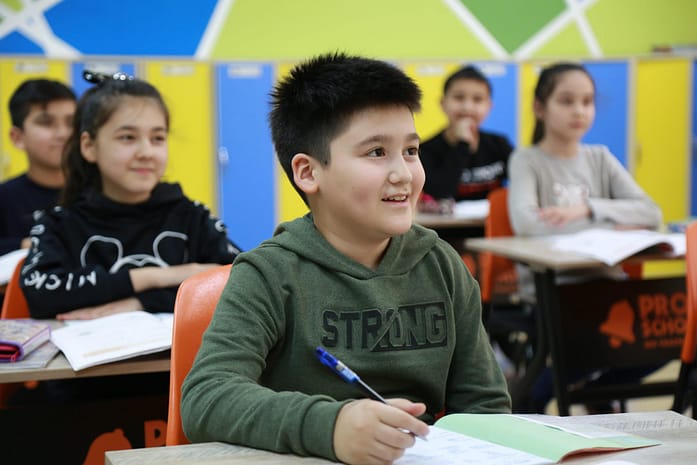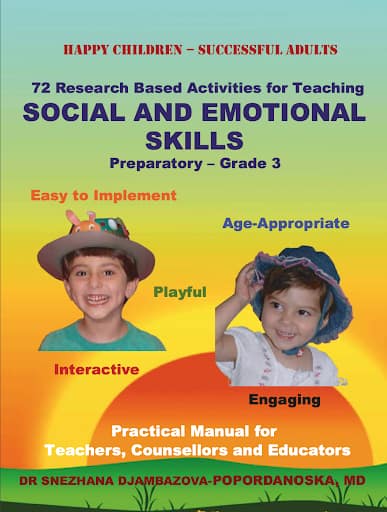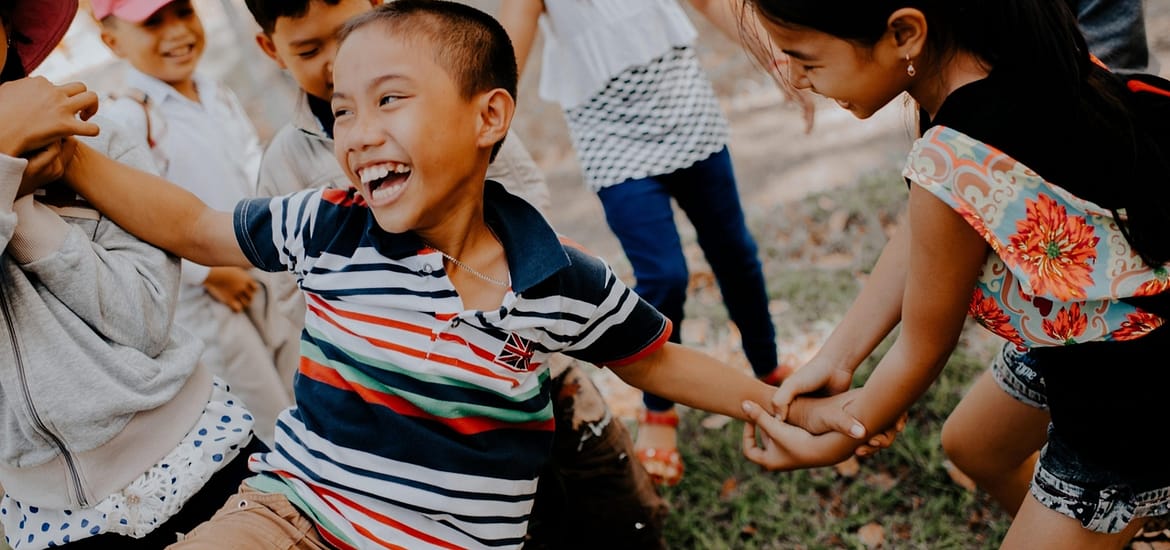A growing body of research undertaken in the last two decades has demonstrated that Social and Emotional Learning (SEL) is fundamental to children’s emotional wellbeing, academic achievement and ability to collaborate with others. SEL is the process of facilitating the child in identifying and managing emotions, being persistent in achieving goals, appreciating the differences and perspectives of others, establishing and maintaining meaningful and positive relationships, making sensible decisions, and managing difficult situations effectively. Helping children master their emotions and relationships makes them better learners. Therefore, socially and emotionally competent children are much happier and productive.
Research also suggests that helping students develop social and emotional skills early in life is the best predictor of their academic and life success. Weissberg and colleagues (2007) meta-analysis comprising 270 research studies of evidence-based SEL programs implemented in several countries worldwide, indicated that incorporation of social and emotional education within a school setting resulted in increased students’ learning engagement, reduced emotional distress, and improved prosocial behaviours.
The critical years to teach children these self-management skills are between the ages of three and seven when the important connections between the “thinking brain” (the frontal lobes) and the “emotional” brain (the limbic system) are forming. These connections are influenced significantly by students’ positive or negative life experiences. When positive experiences are repeated frequently, they become positive habits that appear in challenging situations or stressful times. Children who are socially and emotionally competent have an increased desire to learn and self-motivation, resulting in higher academic achievement within the school. Moreover, children with well-developed social and emotional skills are more attentive in classrooms and require fewer disciplinary interventions.

SEL Programs in the Book “72 Research Based Activities for Teaching Social and Emotional Skills”
SEL programs in the book “72 Research Based Activities for Teaching Social and Emotional Skills” by Dr Snezhana Djambazova –Popordanoska have been developed for children in Preparatory to Grade 3 classes. These programs have been peer-reviewed by a team of health professionals and primary school teachers. All 72 research based activities for teaching social and emotional skills are age-appropriate, engaging and interactive. They synthesise the theoretical and practical principles of cognitive behavioural therapy and the learner-centred psychological approach principles which have significant influences on students’ academic performance. These SEL programs also draw on the principles of positive psychology including the role of positive emotions and optimistic thinking, and their contribution to optimal functioning and learning.
Each activity for raising children’s social and emotional skills has clear aims and objectives, a simple step-by-step guide, and a summary. These activities are based on long-term scientific research and on real-life situations that are fun, engaging and meaningful to the children. They include five groups of social and emotional competencies which according to CASEL (2021) are imperative for raising children’ social and emotional skills:
1. Self–awareness
(the capacity to accurately identify and manage one’s feelings as well as one’s strengths and weaknesses; the capacity to accurately perceive the perspectives of others and accept their differences).
2. Self–management
(the capacity to manage one’s emotions effectively and to engage in safe and healthy behaviour, as well as the capacity to persist in achieving positive and realistic goals).
3. Responsible decision-making
(the capacity to evaluate situations accurately and make constructive and ethical decisions, as well as to implement informed solutions to problems).
4. Social awareness
(the capacity to accurately perceive the perspectives of others, accepting and appreciating their differences, the capacity to show understanding and empathy for others, the capacity to communicate openly and clearly expressing one’s thoughts and feelings).
5. Relationship skills
(the capacity to establish and maintain positive relationships, to cooperate with others as well as to resolve conflict peacefully).
It is expected that participation in these research based Social and Emotional Learning Programs will enable children to:
- Listen attentively
- Become increasingly aware of their thoughts and feelings
- Learn to correctly identify and manage their feelings
- Be self-motivated
- Develop positive attitudes
- Treat others with respect
- Develop sensible decision-making
- Develop effective problem-solving skills
- Deal effectively with challenging situations
- Enhance their collaboration with others
- Resolve conflicts peacefully
- Develop caring attitude and concerns for others
- Empathise with others (understand how others feel)
All 72 research based activities for teaching social and emotional skills are designed to instil a habitual way of thinking, feeling and being in the present moment. All of the activities in this book are simple, straightforward and ready to use. Moreover, there is a CD included in this book that contains materials for certain activities, such as questionnaires, case scenarios, pictures etc. In other words, this book is a complete practical manual for teaching children’s social and emotional skills designed to help parents, teachers, educators, counsellors, and psychologists working with children aged between 4 to10 years.
It is important to note that those children, who are supported to develop their self-worth, emotion regulation skills and social competencies, can flourish into self-motivated and independent learners. Researchers agree that socially and emotionally competent children are more self-aware and self-assured about their own capacity to learn and achieve academically. Those children can intrinsically motivate themselves and are very well organised when approaching their work. Hence, children who can manage their stress effectively, display resilience when faced with challenges and make responsible decisions regarding completing their homework, do better academically.
Help your child develop strong social and emotional skills which are crucial to their emotional wellbeing, as well as to their academic and lifelong success.
Get this popular book TODAY!
“Enriching, effective and efficient programs that are not only required but are imperative to the wellbeing of our society.”
Sandra Stevenson-Newell, Dip. Counsellor, Melbourne, Australia.

72 Research Based Activities for Teaching Social and Emotional Skills

